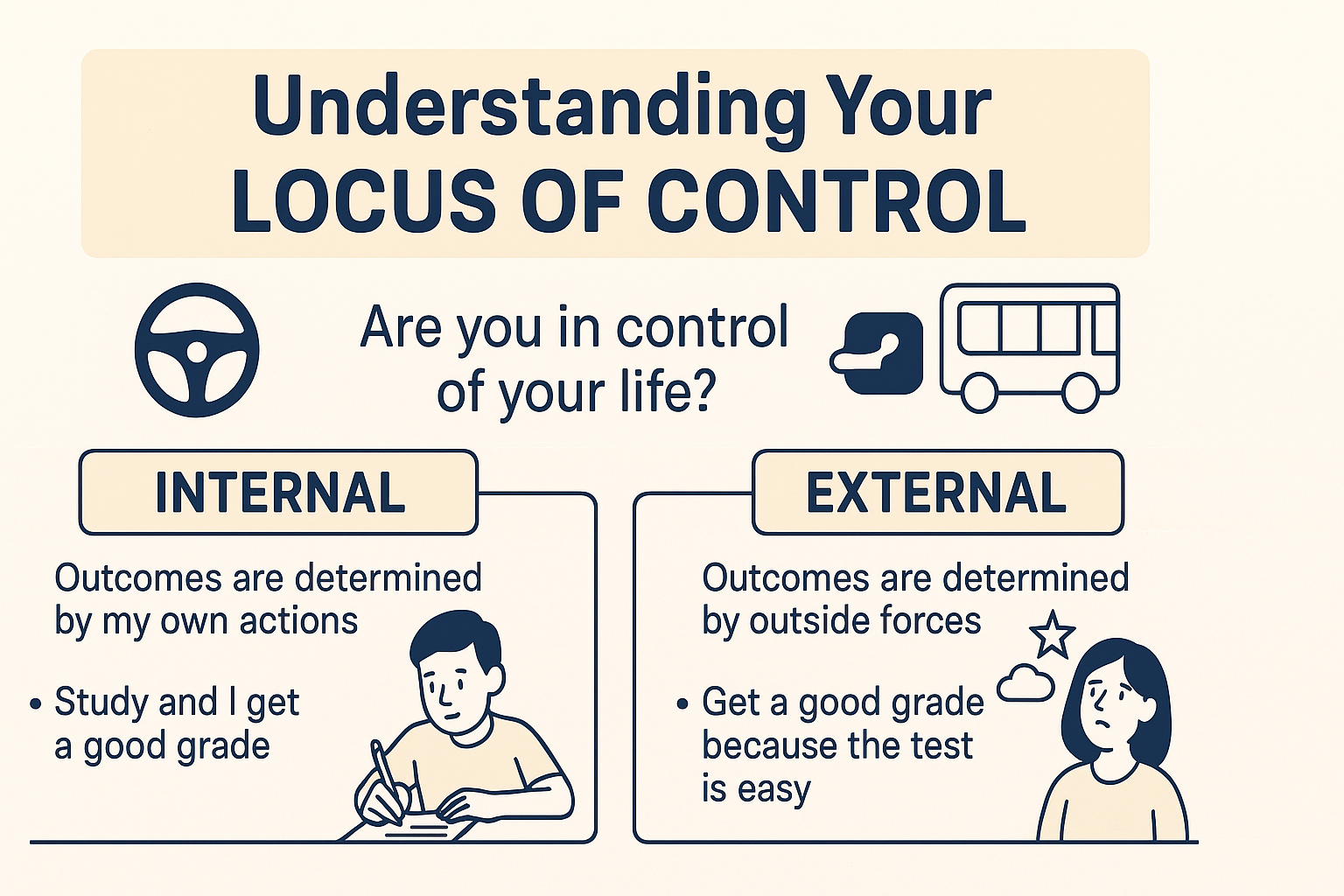Hey everyone, as a personality assessor, I’ve seen how a single psychological concept can dramatically shape a person’s life trajectory. That concept is the locus of control. It’s a fundamental aspect of personality that refers to how you perceive the cause of life events. Do you believe you are in the driver’s seat, or are you a passenger in your own life? Understanding this can be a game-changer for your academic, professional, and personal success.
Internal vs. External Locus of Control
There are two main types of locus of control:
- Internal Locus of Control: If you have an internal locus of control, you believe that you are primarily responsible for the outcomes in your life. You see your successes and failures as a direct result of your own actions, efforts, and decisions. This belief system is often associated with higher motivation, self-efficacy, and a greater sense of personal responsibility. Example: If you ace a final exam, you attribute it to your hard work and diligent studying. If you fail, you recognize that you didn’t put in enough effort.
- External Locus of Control: Conversely, an external locus of control means you believe that outside forces—like luck, fate, other people, or circumstances—are what dictate your life’s events. People with a strong external locus of control often feel powerless and may attribute their successes to good fortune and their failures to bad luck or unfair circumstances. Example: If you do well on a test, you might think it’s because the test was easy. If you fail, you might blame the professor or a tricky test.
Why Does Your Locus of Control Matter?
Your locus of control is more than just a psychological term; it’s a blueprint for your behavior. It influences everything from how you handle stress to your career choices.
- Resilience: Individuals with an internal locus of control tend to be more resilient. When faced with a setback, they are more likely to analyze what they could have done differently and make a plan to improve, rather than giving up. They see challenges as opportunities for growth.
- Motivation and Goal-Setting: An internal locus of control fuels ambition. If you believe your efforts will lead to success, you’re more likely to set challenging goals and work hard to achieve them. This is crucial for students navigating complex courses and competitive internships.
- Mental Health: Research has shown a link between an internal locus of control and better mental health outcomes, including lower rates of anxiety and depression. Believing you have control over your life reduces feelings of helplessness and despair.
- Academic and Career Success: In a study by Rotter (1966), it was found that people with a strong internal locus of control tend to have higher GPAs and are more likely to take initiative in their careers. They are proactive, problem-solvers, and more likely to seek out new opportunities.
Shifting Your Perspective
So, how do you cultivate a more internal locus of control? It’s not about denying that external factors exist; it’s about changing your response to them. Here are a few practical steps:
- Acknowledge Your Choices: Start by consciously identifying the choices you make every day, big or small. From deciding to wake up early to study to choosing a major, recognize that you are making a choice that influences your future.
- Focus on What You Can Control: When a challenge arises, don’t dwell on the things you can’t control (e.g., a professor’s grading style, a recession). Instead, focus on the things you can control (e.g., your study habits, your skill set, your attitude).
- Take Responsibility: When you make a mistake, own it. Instead of saying, “The test was unfair,” try, “I didn’t prepare enough for the test.” This is a difficult but empowering shift in language.
- Set SMART Goals: Set goals that are Specific, Measurable, Achievable, Relevant, and Time-bound. Achieving these goals reinforces the belief that your efforts lead to success.
Conclusion
Your locus of control is a powerful predictor of your success and happiness. While it may feel easier to blame external factors, the real power lies in recognizing your own agency. As you navigate the complexities of college life and begin your careers, remember that you are not just a product of your circumstances; you are the architect of your own destiny. Take control, own your choices, and watch your life change for the better.



